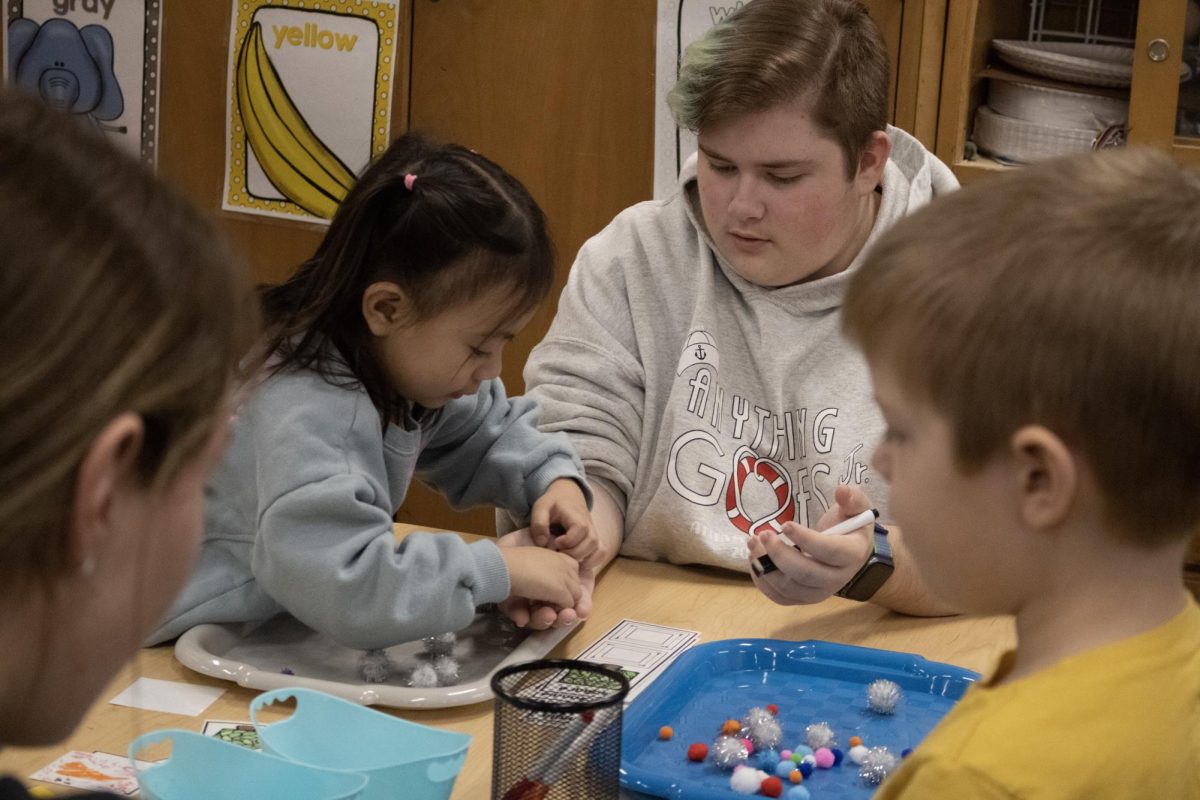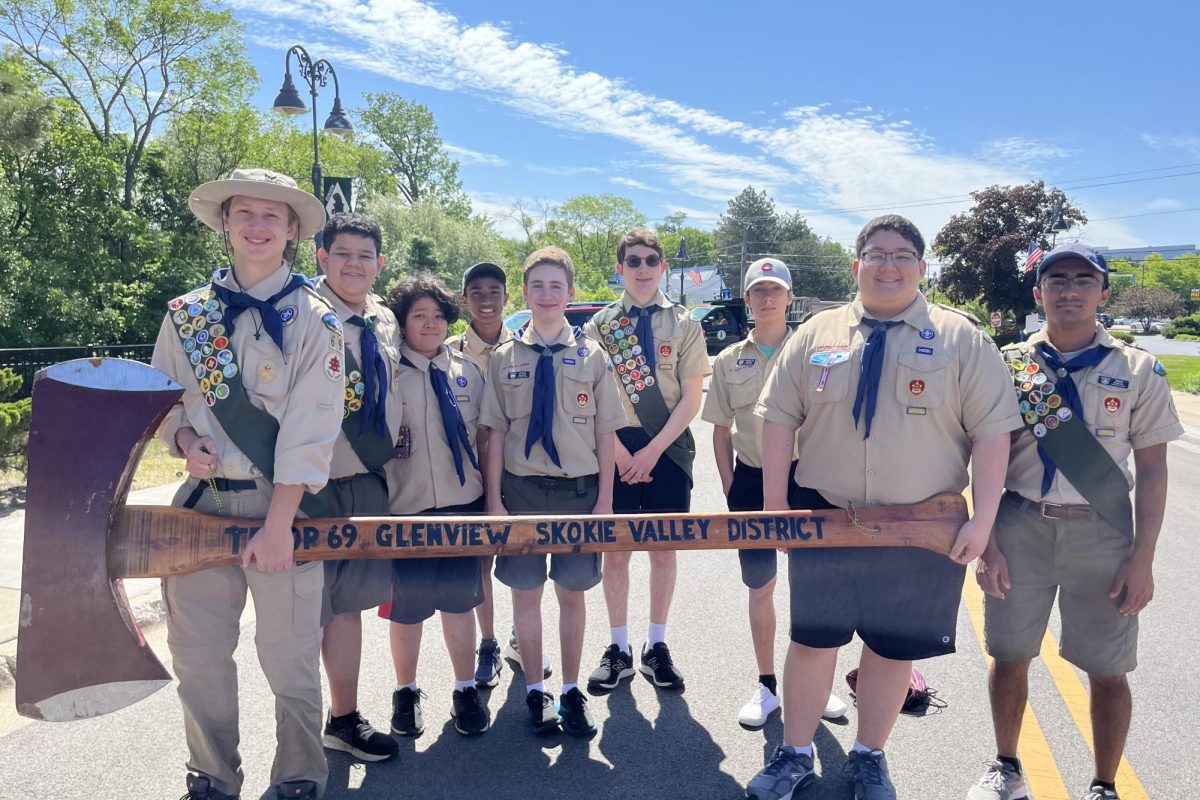Several South classes are little-known or offer students the chance to tap into talents they might not otherwise know they possess. The Oracle features four of these classes including “Issues and Answers” taught by Daniel Zapler, “Astronomy” taught by Steven Grosland, “Russian” taught by Izabella Tashlitskaya and “Improvisation” taught by Beth Ann Barber.
Astronomy
When one looks out into the sky at night, he or she sees a dark expansive space stretched above, speckled with dots of bright light. But what makes up this macrocosm known as the universe, and where do we as humans fit into it? Astronomy is a one-semester science elective course at South taught by Steven Grosland which explores these questions.
The course topics include history of astronomy, the solar system, planets, moons, stars, binary star systems, galaxies, the overall structure of the universe and cosmology.
Grosland begins each class with what he calls the “astronomy picture of the day.”
“The picture is normally [something relating] to the universe, so we always take five to ten minutes talking about it,” Grosland said. “Then normally for half of the class I lecture, and [the other half] of the class the students complete a lab.”
Senior Michelle Rolf believes her experience in South’s Astronomy class changed her view on the world and our place as humans in the universe.
“My outlook on life has changed because I now understand what is going on millions of light years away, which kind of makes my petty problems seem insignificant,” Rolf said.
Grosland believes the class appeals to many students.
“Any student who is interested in the place they live and wants knowledge on stars or just the picture of the universe [should take the class],” Grosland said.
Russian
Izabella Tashlitskaya, Russian language teacher, was born in St. Petersburg, Russia, studied at a university in Russia and traveled, lived and worked in other republics in the former USSR before becoming a teacher at South.
“The concepts we cover in class are primarily focused around the culture and society of traditional and modern Russia,” Tashlitskaya said. “We cover food, clothing, professions and positions of family members in society, trends of society, poetry, literature, art.”
Most of Tashlitskaya’s students have Russian family backgrounds, so learning the Russian language in school helps them connect with their culture.
“I have many students mention that because of a specific topic we covered in class, they were able to have a sophisticated discussion at home with their parents and other people,” Tashlitskaya said.
Junior Gabby Medovoy, a student in Tashlitskaya’s Russian class, believes the lessons taught in class will be quite valuable later on in life.
“With knowing Russian, [it] opens up more business opportunities,” Medovoy said.
Tashlitskaya recognizes a similar need for Russian speakers.
“They are talking about the shortage of people with knowledge of the Russian language in the Department of Justice, the U.S. Congress, and the Peace Corps,” Tashlitskaya said. “So, knowing Russian will help to fill those positions.”
Issues & Answers
“It’s just about ideas,” is how Daniel Zapler, social studies teacher, describes his Issues and Answers class, offered to juniors and seniors. Although it is considered a history class, according to Zapler, it falls under the category of a philosophy course.
The class begins with the ‘word of the day.’ According to senior Andrew Peterson, Zapler will give the class a word, and as a class, they will talk about it using stories and examples.
“He won’t give us the definition, but he will get us talking about it, so by the time he does give us the definition we will understand it better,” Peterson said.
The rest of the time is used to discuss questions as a class. Some of these questions include thoughts about the definition of beauty, the meaning of life, why people do the things they do and other similar, non-tangible ideas.
According to Zapler, students are encouraged to bring their own life experiences and questions to share. Junior Rema Abu-Hashim states that the class is mostly student-led, which she enjoys because it gives them a better chance to learn. Zapler doesn’t have a class outline but rather designs the class around what the students want to do.
Abu-Hashim took several life lessons away from her time in the Issues and Answers class.
“I have learned that patience is the key to success,” Abu-Hashim said. “You’re not going to learn anything unless you take the time to really dig down deep and figure out the answer.”
The class is enjoyable and beneficial for both Zapler and his students.
“[The] questions we address are questions I’m interested in [because] I’m looking for answers too,” Zapler said. “[It is an] opportunity for me to learn as well.”
According to Zapler, he hopes students take away several ideas from the course.
“[I hope students can] rekindle a love of learning [and develop a] deeper understanding of themselves,” Zapler said.
Improvisation
Improvisation, or “improv,” is a form of acting that requires extemporaneous speech, acting and sometimes movement.
South’s Improvisation elective course is taught by Beth Ann Barber, who says that the goal of the class is to introduce students to a type of acting with which they might be unfamiliar.
“The foundation is to learn what improv is, learn how to work well with each other, to learn the rules of improv and then begin to play the games,” Barber said.
Freshman Helene Paulson, who took the summer elective of Improvisation, loves the games played in the class.
“On a typical day, we have these certain games that we practice,” Paulson said. “For instance, [in] ‘Doo-run-run’ you have to be able to be quick on your feet with rhymes, and [in] ‘Freeze’ you have to be quick on your feet with scenarios.”
Junior Zack Bauer thinks that learning improv can improve one’s ability to memorize lines.
“Improv helps you say dialogue comfortably and definitely helps with all acting skills,” Bauer said. “Being able to do improv makes you get comfortable thinking very fast, which I believe also ties in with remembering lines faster and easier.”
Paulson believes that being a part of the class gives students a deeper understanding of acting and the skill it requires.
“You may think, ‘I hate acting; I’m going to suck at this,’ but, really, once you get into it, and once you actually go to class, and you meet new people and you talk to new people, you honestly start loving every minute of it,” Paulson said.
Of course, not everyone will be good at every game that the elective introduces, but, according to Barber, everyone has his or her own inevitable strengths and weaknesses.
“Improv is about playing to the height of your abilities,” Barber said. “The point of this class is to find out what you’re good at, find out what you’re not good at and then get better.”








